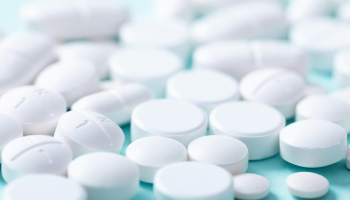A lot of people in the United States have fallen trapped in heroin addiction with statistics showing at least 100,000 new users of heroin each year. This is alarming since the drug has no medicinal use at all. Treatment for heroin addiction includes detox, therapy, and a shift to a healthy lifestyle and this may last depending on the level of addiction a person has.
For individuals who have engaged in abusing heroin for a long period of time or those who have used it in conjunction with other addictive substances, treatment needs to be intensive. Treatment programs may range from 30 to 90 days depending on a person’s progress as soon as treatment begins.
To get an accurate time frame for your treatment, you need to consult with a doctor. They can give you a personalized recovery plan from heroin addiction.
What To Expect in a Heroin Addiction Treatment
 Treatment for heroin addiction may be conducted in both inpatient and outpatient settings. It is important to seek proper medical evaluation before enrolling in a treatment plan so that one can really choose what is most suitable for their needs. Severe addiction can be overcome with inpatient care while outpatient care is advised for those with mild addiction.
Treatment for heroin addiction may be conducted in both inpatient and outpatient settings. It is important to seek proper medical evaluation before enrolling in a treatment plan so that one can really choose what is most suitable for their needs. Severe addiction can be overcome with inpatient care while outpatient care is advised for those with mild addiction.
It is also possible for patients to shift from inpatient to outpatient care later on but this all depends on their progress. With the guidance of a medical expert, patients can work on a treatment plan that is effective and more cost-friendly. Regardless of the treatment option, the following are the phases that can be expected during treatment for heroin addiction.
Detox Process
 Treatment typically begins with detox, a process of getting rid of the substance in a person’s system by not taking the drug. This is a critical phase since withdrawal symptoms can be extremely painful and without proper medical attention, the tendency to return to substance use could be very tempting. When this happens, multiple health risks may also follow.
Treatment typically begins with detox, a process of getting rid of the substance in a person’s system by not taking the drug. This is a critical phase since withdrawal symptoms can be extremely painful and without proper medical attention, the tendency to return to substance use could be very tempting. When this happens, multiple health risks may also follow.
To ease the withdrawal, physicians prescribe opioid substances that take time to penetrate the body. Methadone and buprenorphine are the most common ones that help relieve the painful conditions of withdrawal. Although they contain an addictive potential, they can work effectively with the supervision of a physician.
Withdrawal from heroin can be overcome within at least a week. The withdrawal symptoms may start kicking in from 6 to 12 hours after the last dose and the pain reaches its peak between 48 and 72 hours. After about 7 to 10 days, withdrawal symptoms are expected to subside and patients may continue to progress to further treatment.
However, a one-week detox treatment time frame does not apply to all patients. Some may suffer from post-acute withdrawal wherein symptoms can last for months and even up to a year. Relapse to addiction can be very tempting during this phase which is why it is best to continue seeking medical attention to prevent relapse from happening.
Further Treatment
This includes therapies, counseling, and engagement to support groups on top of the prescribed medications during treatment. This help strengthens an individual’s coping skills toward drug abuse and this can also pave the way to discovering and understanding personal triggers to addiction.
Support groups are helpful not only during the addiction treatment but also in keeping patients on the right track as they move on with their lives after reaching sobriety. On top of that, experts also note the essence of a lifestyle that follows a healthy diet, exercise, and meditation as important means to fully recover from addiction.
How Long Does Further Treatment Take
 Therapies and counseling, as well as sessions in support groups during inpatient and outpatient care, may run in three kinds of duration, specifically 30, 60, and 90 days. Most medical experts emphasize that the longer the treatment, the more effective recovery from addiction takes place.
Therapies and counseling, as well as sessions in support groups during inpatient and outpatient care, may run in three kinds of duration, specifically 30, 60, and 90 days. Most medical experts emphasize that the longer the treatment, the more effective recovery from addiction takes place.
For this reason, a 90-day treatment plan can be the most ideal treatment, especially for those who are suffering from severe addiction. This length of time allows individuals to master the habits of living a life away from the substance. It also deepens an individual’s understanding of oneself and strengthens their will to cope with the temptations of substance use.
Despite these benefits, treatment for 90 days also entails a higher cost compared to shorter periods of treatment. Another option is to choose the treatment plan which runs for 30 days and then, later on, decide whether an extended duration is still necessary or not anymore. Typically, insurance covers this length of treatment which is why it is the most efficient in cost.
A 30-day treatment plan is also beneficial in reaching recovery. This duration is enough to allow the body to stabilize after going through the detox process. With a strong commitment to work with the treatment plan, progress can be reached. It is best to seek the advice of one’s physician about options that can be done after 30 days to avoid relapse.
A treatment plan which lasts for 60 days is also a great option to take, although it can still be costly since most insurance only covers a month-long treatment plan. Despite this, treatment for 60 days can also work well in terms of putting up new ways to keep oneself sober. A healthy lifestyle established during treatment is one great factor to reach recovery.
Addiction to heroin causes drastic psychological changes in a person and it is important to give oneself enough time to heal and allow one’s system to return to normal function. Although the cost and the length of treatment are important factors to consider, it is also vital to evaluate one’s personal disposition and provide interventions that the body truly needs.
The journey to overcoming addiction does not come on a straight path. Sometimes people feel like they are completely ready to face the challenges of the real world and then, later on, find themselves struggling in the middle of the way. This can happen to anyone but with an open mind to provide oneself with proper medical care, progress can be achieved.



